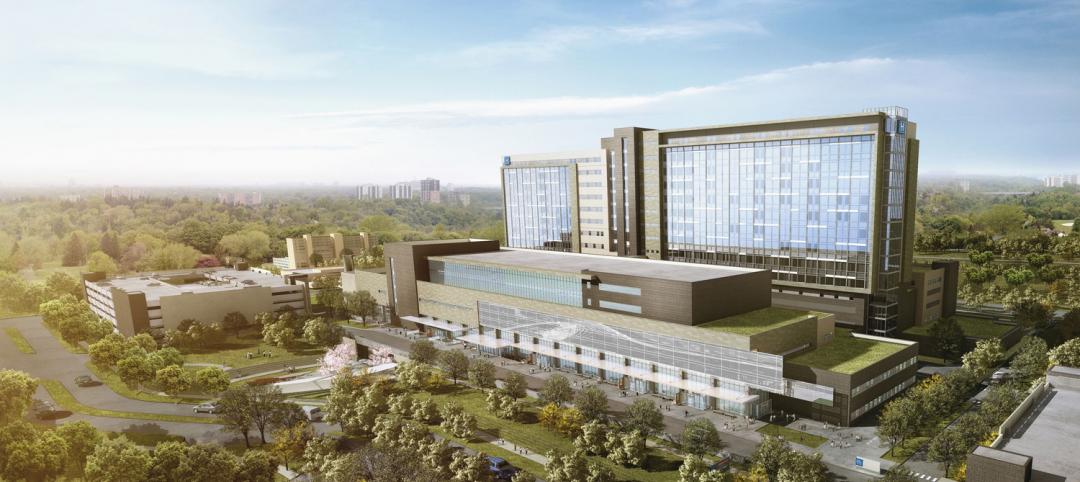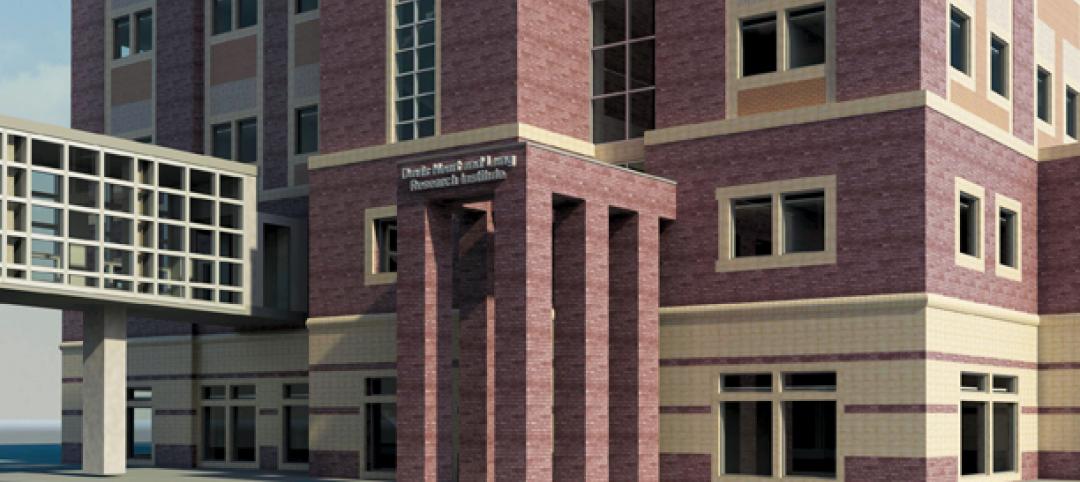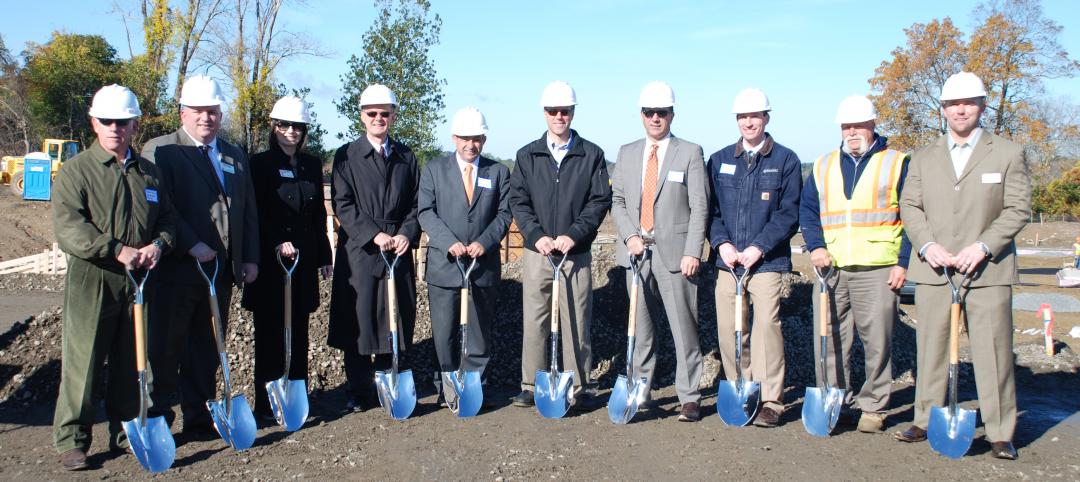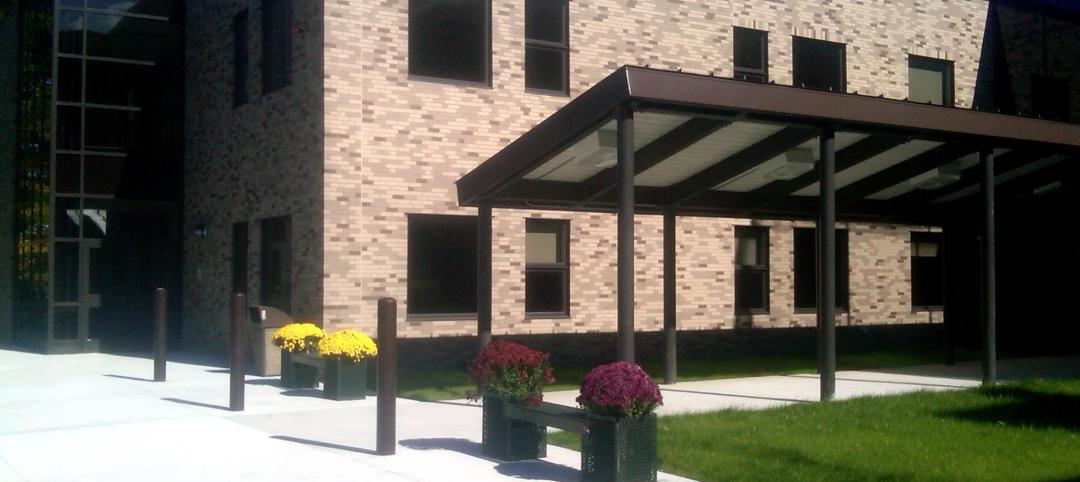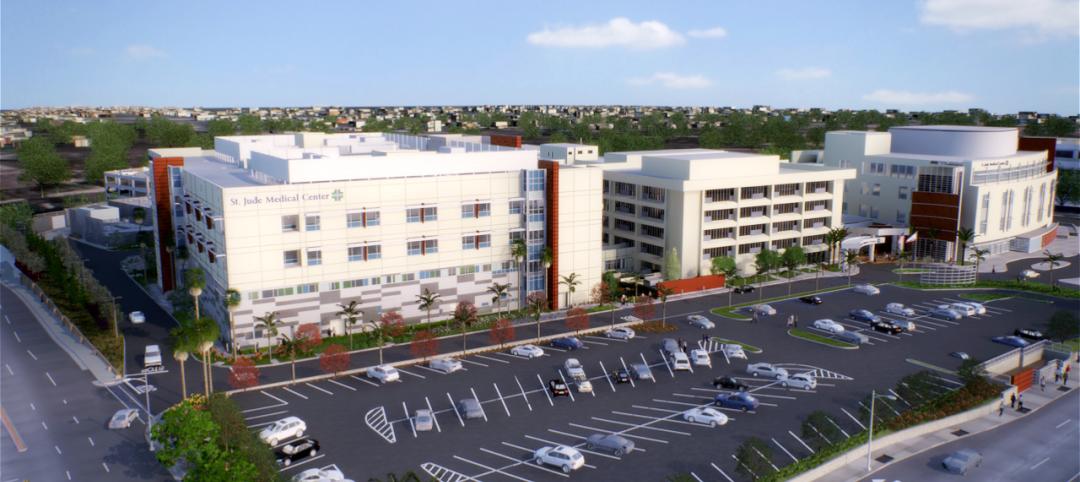
The team behind the new Holyoke (Mass.) Health Center was aiming for more than the renovation of a single building—they were hoping to revive an entire community.
Holyoke's central business district was built in the 19th century as part of a planned industrial town, but over the years it had fallen into disrepair. Among the many empty storefronts and dilapidated buildings stood three that used to make up the McAuslan & Wakelin department store. Where most people saw broken glass and crumbling brick, the CEO of the Holyoke Health Center instead saw a medical mall—a new center of downtown activity and business where the city's large, underserved low-income community could find access to health care.
Boston's Steffian Bradley Architects (SBA) began work on reconstructing the 110,000-sf complex into a space where a wide variety of health organizations could come together under one roof. The facility would house a medical suite for specialists such as radiologists, physical therapists, and midwives. There would be a dental practice, patient education spaces, a teaching kitchen, health service enrollment centers, and a large central plaza to improve wayfinding. All told, planners expected the complex to serve 17,000 patients and create more than 350 new jobs.
 |
| A four-story glass atrium connects the health center’s three buildings (left). The balustrade on the Dwight Building, which sits on the corner, had to be matched to the originals to qualify for historic grants (right). PHOTO: ROBERT BENSON PHOTOGRAPHY |
The buildings first needed some work. The three structures, all built around the turn of the 20th century, were well-used over the years and little evidence of their original interior appearance remained. Some features, such as mosaic tile floors, polished marble stair treads, and wainscoting, were intact. But others, such as the buildings' decorative tin ceilings, were scarred from the addition of room partitions and mechanical runs.
Then, several months into the design process, the client discovered they would need federal historic restoration grants to complete the project—and that meant returning the buildings to their former glory. To accommodate this, SBA undertook forensics and historical research in order to document and re-create original architectural features. For instance, a balustrade that formed the roof cornice had been demolished prior to the decision to apply for federal funding. To rebuild it, SBA took a mold of a remaining baluster and used it to duplicate the originals.
Other federal requirements took more ingenuity to overcome. The grant stipulated that walls had to be re-plastered rather than covered with gypsum board. But with the prospect of strollers and wheelchairs banging into the walls every day, the team worried that standard plaster couldn't take the blows without crumbling. SBA solved the problem by using Xorel wallcovering, a durable polyethylene textile that softens hard knocks, allowing the plaster to hold its shape.
The project's pride and joy lies at its center, in the new glass atrium that links the three buildings and acts as a transparent interior main street. The atrium also makes the Holyoke Health Center MAAB/ADA compliant by ganging together the buildings' disparate grade levels through a series of stairs and ramps, as well as providing space for two new hospital elevators.
Opened in early 2006, the Holyoke Health Center has served several thousand patients and inspired the redevelopment of many surrounding properties—meeting its original goal of revitalizing the Holyoke community.
Related Stories
| Jan 4, 2012
HDR to design North America’s first fully digital hospital
Humber River is the first hospital in North America to fully integrate and automate all of its processes; everything is done digitally.
| Jan 3, 2012
VDK Architects merges with Harley Ellis Devereaux
Harley Ellis Devereaux will relocate the employees in its current Berkeley, Calif., office to the new Oakland office location effective January 3, 2012.
| Jan 3, 2012
New Chicago hospital prepared for pandemic, CBR terror threat
At a cost of $654 million, the 14-story, 830,000-sf medical center, designed by a Perkins+Will team led by design principal Ralph Johnson, FAIA, LEED AP, is distinguished in its ability to handle disasters.
| Jan 3, 2012
BIM: not just for new buildings
Ohio State University Medical Center is converting 55 Medical Center buildings from AutoCAD to BIM to improve quality and speed of decision making related to facility use, renovations, maintenance, and more.
| Dec 12, 2011
Skanska to expand and renovate hospital in Georgia for $103 Million
The expansion includes a four-story, 17,500 square meters clinical services building and a five-story, 15,700 square meters, medical office building. Skanska will also renovate the main hospital.
| Dec 1, 2011
Nauset Construction breaks ground on Massachusetts health care center
The $20 million project is scheduled to be completed by December 2012.
| Nov 29, 2011
Report finds credit crunch accounts for 20% of nation’s stalled projects
Persistent financing crunch continues to plague design and construction sector.
| Nov 28, 2011
Nauset Construction completes addition for Franciscan Hospital for Children
The $6.5 million fast-track, urban design-build projectwas completed in just over 16 months in a highly sensitive, occupied and operational medical environment.
| Nov 11, 2011
AIA: Engineered Brick + Masonry for Commercial Buildings
Earn 1.0 AIA/CES learning units by studying this article and successfully completing the online exam.


